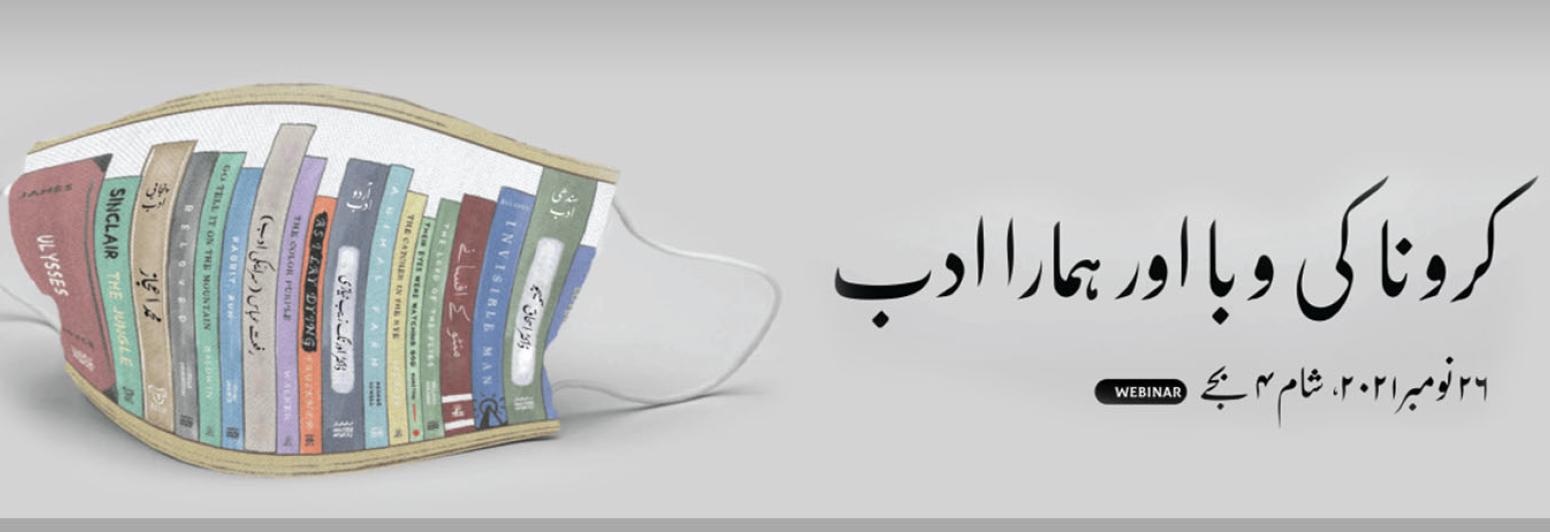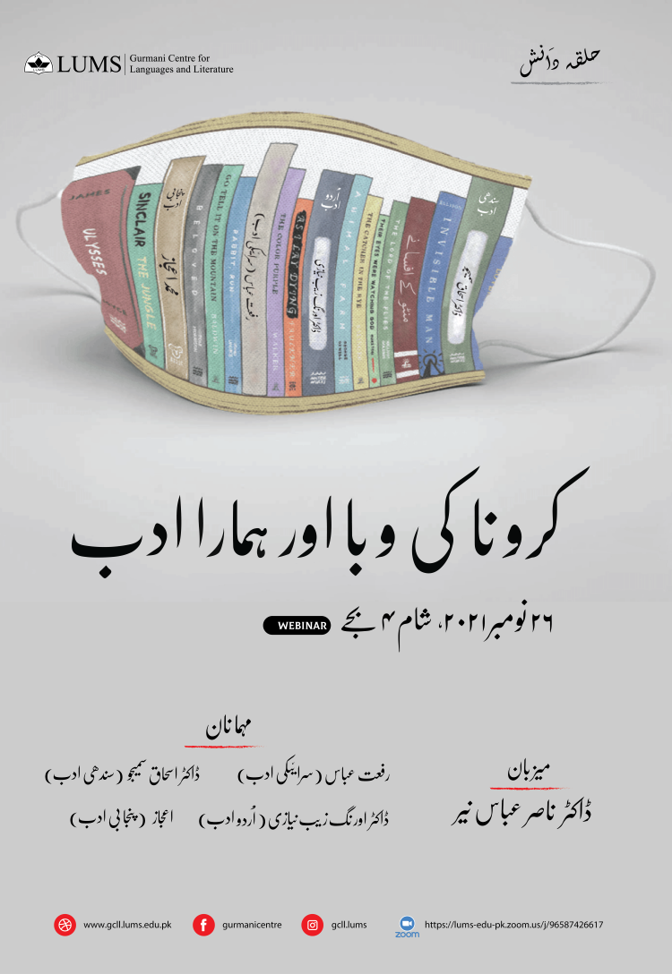
November 26, 2021
The pandemic has influenced every part of life in one way or the other. In some cases, it has completely transformed our way of living, perception of reality, and societal structure. Literature mirrors all such changes and events and it did the same during the COVID-19 pandemic. Urdu and other Pakistani languages too have produced poetry, fiction, and nonfiction, each of which reflects the socioeconomic, political, and existential consequences of the pandemic. This panel discussion is an attempt to explain how Pakistani languages like Punjabi, Seraiki, Sindhi, and Urdu have registered the COVID experience.
The Gurmani Centre for Languages and Literature is organising a webinar titled, Corona kī Vabā aur Hamārā Adab.
Date: Friday, November 26, 2021
Time: 4:00 pm
Link: https://lums-edu-pk.zoom.us/j/96587426617
About the speakers
Born in Multan, Dr. Rifat Abbas is a Seraiki poet and is a retired Assistant Professor from the Punjab Education Department. His literary work, spanning 40 years, consists of 10 poetry collections and a novel. Abbas has received three National Awards, from the Academy of Letters in Pakistan. In 2005, Abbas was given the Khawaja Ghulam Farid Award for Seraiki poetry, for his collection Ishq Allah Saeen Jagiya.
Dr. Aurangzaib Niazi is the Associate Professor of Urdu at Government Islamia College Civil Lines, Lahore. His areas of research include ecocriticism, environment, and Urdu literature. His essay “Pandemic: Facts and Fiction” was published in Bunyad this year.
Dr. Ishaq Samejo is a writer, poet and cultural activist. He serves as an Associate Professor of Sindhi language and literature in the Department of Sindhi at University of Sindh, Jamshoro. Currently, he is serving as the director of the Institute of Sindhology. Dr. Samejo did his PhD in Sindhi literature on “Progressive thought in Sindhi Poetry” in 2014, from University of Sindh, Jamshoro and is also a literary critic.
Mr. Ejaz is a Punjabi author and poet. To his credit, he has over ten books of poetry, translations, short stories, and critique. He has worked as the editor of prominent Punjabi journals and currently, teaches Punjabi language and writing.
The webinar will be moderated by Dr. Nasir Abbas Nayyar.




















